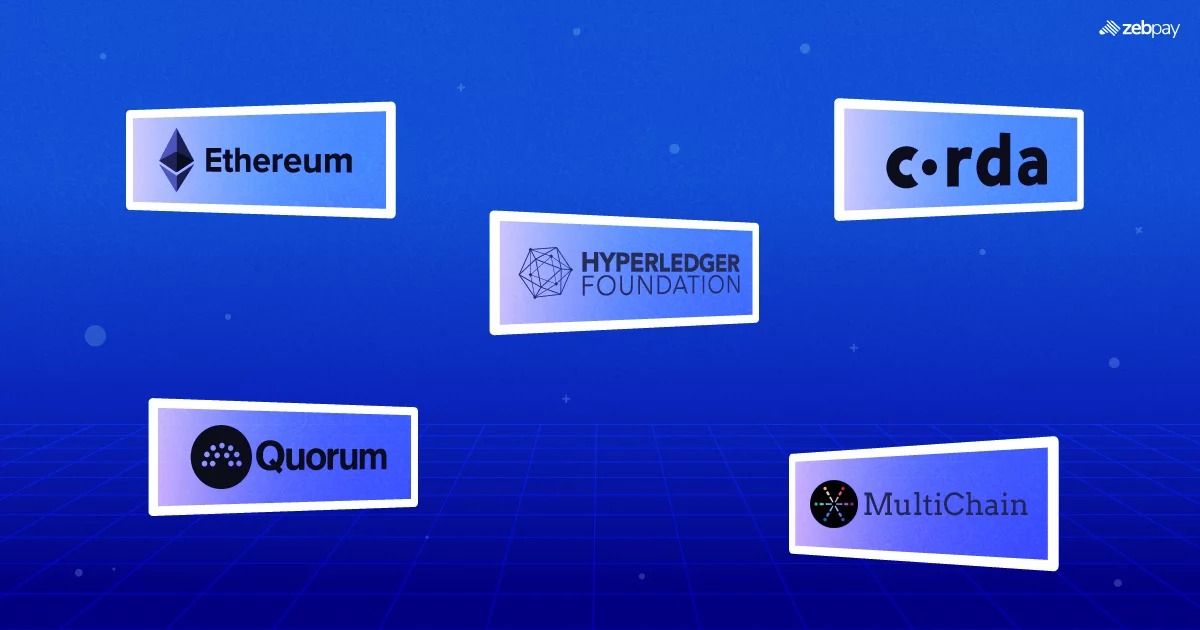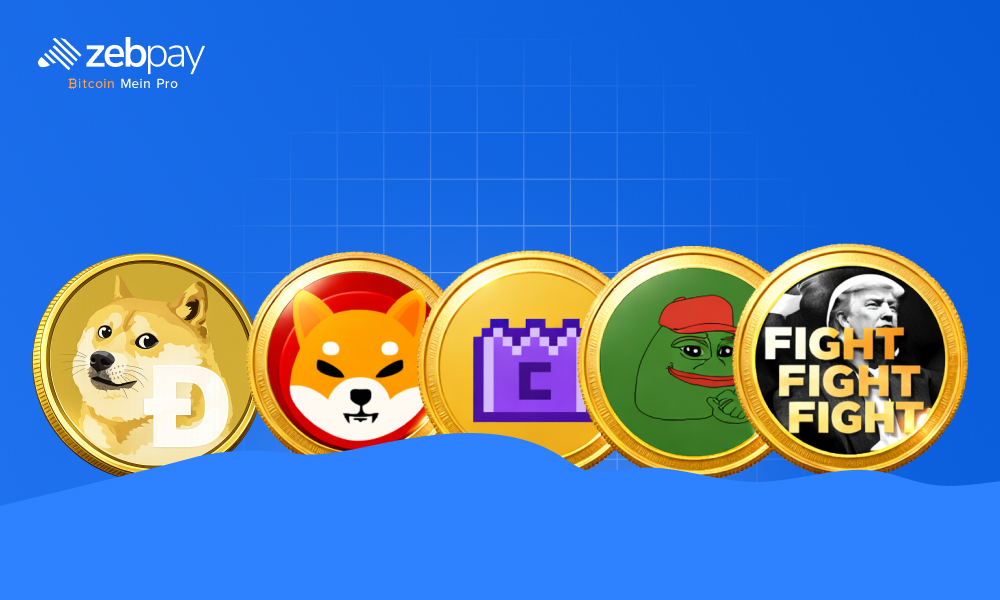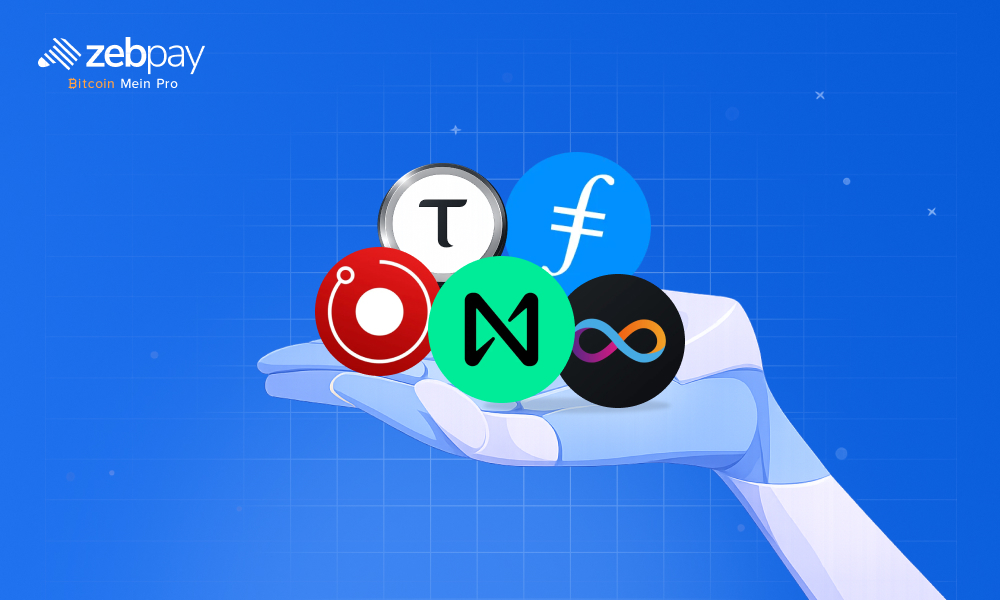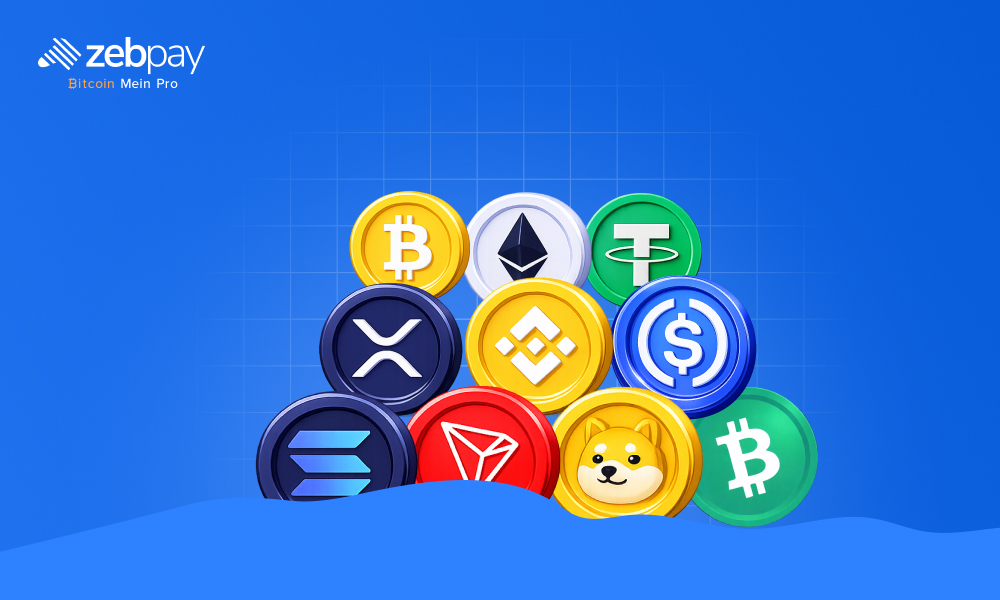The digital asset ecosystem is evolving at a rapid pace, with constant innovation reshaping how people interact with money, finance, and technology. Before stepping into crypto investments, it’s essential to first understand the foundation that powers this entire ecosystem. So, what is blockchain technology? Simply put, blockchain is a decentralized, transparent, and tamper-resistant digital ledger that records transactions across a distributed network of computers. To define blockchain more clearly, it is a system that enables secure peer-to-peer transactions without the need for intermediaries such as banks or financial institutions.
Since the introduction of Bitcoin in 2009, blockchain technology and cryptocurrencies have progressed far beyond simple digital payments. Today, these innovations power a wide range of financial activities, including decentralized lending, borrowing, trading, and investing. Beyond finance, blockchain also supports decentralized applications (dApps), which allow developers to build platforms for gaming, NFTs, supply chains, identity management, and much more—without relying on centralized control. This expanding utility has significantly increased the relevance and adoption of blockchain across industries.
In this article, we will explore five essential blockchain protocols that every crypto enthusiast should be familiar with. Gaining a deeper understanding of these core networks will not only strengthen your grasp of how the crypto ecosystem functions but also help you evaluate opportunities with greater clarity and confidence as the industry continues to mature.
What is Blockchain Technology?

Blockchain protocols are the fundamental rules that define blockchain networks and determine how they operate in a decentralised environment. To fully understand their importance, it’s essential to first clarify what is blockchain technology. At its core, blockchain technology is a distributed digital ledger that records and verifies transactions across a network of computers without relying on a central authority. When we define blockchain, it refers to a secure, transparent system built on cryptography and consensus.
These protocols control how nodes communicate with each other and with the wider network. Since blockchain technology depends on coordination between independent participants, protocols ensure that data is validated, transactions are confirmed, and trust is maintained across the system. In simple terms, when we define blockchain in practical use, protocols are what turn the technology into a functioning network.
Every blockchain follows its own protocol structure, which governs the behaviour of miners, validators, stakers, voters, and investors. These rules shape key areas such as consensus mechanisms, network upgrades, governance, and overall blockchain development. For investors, understanding what is blockchain technology at the protocol level is critical, as these rules directly influence a project’s long-term stability and growth.
Protocols also have a direct impact on performance and security—two pillars of blockchain technology. Since they essentially define blockchain operations at the structural level, having clarity on how protocols work is essential for anyone navigating the crypto ecosystem. Below is a list of prominent blockchain protocols for reference.
Read more: Blockchain in India
Five Types of Blockchain Protocols Which are Widely Accepted
Hyperledger
Hyperledger is a highly reputed protocol which powers enterprises to develop blockchain-based solutions specific to their needs. Industry giants like JP Morgan and Samsung have leveraged this technology for developing business applications. Several Hyperledger projects have graduated from an incubation stage and have caught fame. Namely: Hyperledger Besu, Hyperledger Fabric, Hyperledger Indy, Hyperledger Indy, Hyperledger Iroha, and Hyperledger Sawtooth. Each version has its possibilities.
Hyperledger also has an extensive library which can help developers build applications. The solutions are crypto-agnostic which means the functionality of the blockchain does not depend on the price of crypto.
This infrastructure provided by Hyperledger makes it one of the most sought-after blockchain solutions in the industry.
Multichain
It is a blockchain protocol built for communication within organisations or between organisations. Multichain provides solutions for private blockchains. Multi-chain provides an API which can be utilised for the development of blockchain solutions. According to the multi-chain website, it cuts down the development time by almost 80%. Unlike public blockchains, blockchains built using Multichain offer complete control over the blockchain and hence it is most suited for organizations to deal with high-privacy financial transactions like banking.
Ethereum
The Ethereum blockchain is perhaps the most explored blockchain to date. It allows the creation of decentralized finance (DeFi) platforms, NFTs, and smart contracts with various applications. Ethereum is an open-source public blockchain which runs on the Proof-of-Stake Consensus mechanism. Proof-of-Stake makes the blockchain hyper-efficient with 99.95% less energy requirement than its previous Proof-of-Work version.
Read more: Ethereum price prediction
Decentralised Autonomous Organisations (DAOs) can build smart contracts on this blockchain. These DAOs have their constitution, voting methods, tokenomics, treasury and reward system. DAOs exist to build a profitable business or add value to the Ethereum ecosystem while ensuring that the power of decision-making is democratized to all group members. There is an endless list of applications which run on Ethereum. Some of the notable ones include MetaMask (a crypto wallet), Brave Browser (A web browser which is giving tough competition to Google Chrome), and many more.
Quorum
It is an open-source solution for companies in the finance sector. It is backed by JP Morgan, one of the largest private banks in the world. It enables the use of Ethereum to build applications for specific uses. Quorum blockchain service can be run through a Microsoft Azure account and can be easily deployed from the Azure marketplace. This enables enterprises to build blockchain services in the cloud.
Corda
It is an open-source project which enables interoperability, which is the power of exchanging information between various blockchains. Transactions performed using Corda are transparent and highly anonymized at the same time. While its solutions are tailored towards banking, several integrations of Corda can make it a dependable solution for any application. It is accredited by the R3 banking consortium making it a marquee name for blockchain solutions for banking.
In the grand scheme of things, ZebPay blogs are here to provide you with crypto wisdom. Get started today and join 6 million+ registered users to explore endless features on ZebPay!
FAQs on Blockchain Technologies
How do blockchain protocols work?
Blockchain protocols provide the rule set that governs how a blockchain network operates. They define how transactions are validated, how nodes communicate, how consensus is achieved, and how data is securely added to the ledger. In short, protocols ensure that blockchain technology runs in a decentralized, transparent, and trustworthy manner.
What is the difference between a blockchain and a blockchain protocol?
A blockchain is the actual distributed ledger where transactions are recorded. A blockchain protocol, on the other hand, is the underlying framework of rules that define blockchain behaviour—covering consensus methods, security standards, governance, and transaction validation.
How do Hyperledger, Ethereum, Quorum, Corda, and Multichain differ?
These platforms differ mainly in purpose and design. Ethereum is a public blockchain focused on decentralised applications and smart contracts. Hyperledger is a suite of enterprise-grade frameworks for private and permissioned blockchains. Quorum is an enterprise-focused, privacy-enabled version of Ethereum. Corda is designed specifically for business and financial agreements. Multichain focuses on building private blockchains with simple deployment and permissions.
Which blockchain protocol is most suitable for private blockchains?
Hyperledger Fabric, Corda, Quorum, and Multichain are all widely used for private blockchain deployments. Among them, Hyperledger Fabric is often preferred for enterprise use due to its modular design, strong access controls, and high scalability.
What is Hyperledger and how does it work?
Hyperledger is an open-source project hosted by the Linux Foundation that provides multiple enterprise blockchain frameworks such as Hyperledger Fabric, Sawtooth, and Indy. It works by enabling permissioned networks where only authorised participants can validate transactions, making it ideal for business use cases.
What is Multichain used for?
Multichain is primarily used to create and manage private blockchains. It allows organisations to control permissions, issue digital assets, track transactions, and deploy blockchain solutions without the complexity of building a network from scratch.
How does Ethereum function as a blockchain protocol?
Ethereum operates as a public blockchain protocol that supports smart contracts and decentralised applications (dApps). It uses the Ethereum Virtual Machine (EVM) to execute code securely across the network and currently runs on a Proof of Stake (PoS) consensus mechanism for transaction validation.
What is Quorum in blockchain?
Quorum is an enterprise-focused, permissioned version of Ethereum developed to support private transactions. It offers enhanced privacy controls, multiple consensus options, and high-speed transaction processing, making it suitable for business applications.
What industries use Corda, Hyperledger, or Quorum?
These blockchain platforms are widely used across industries such as banking and finance, supply chain management, healthcare, insurance, trade finance, real estate, and energy. They are especially valuable in sectors that require high privacy, strict data control, and regulatory compliance.






